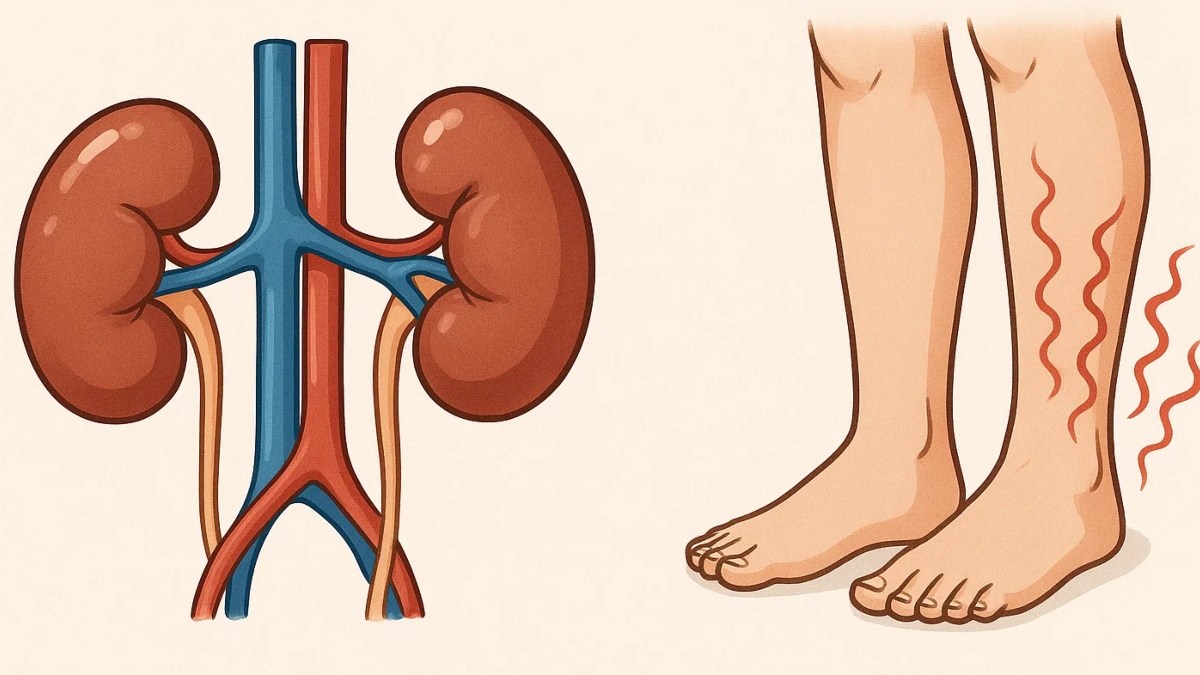Restless Legs Syndrome & Kidney Health: What You Need to Know for Better Sleep & Wellbeing

Is Your Restless Leg Syndrome Linked to Kidney Health? An Expert's Guide
Restless Legs Syndrome (RLS) is a frustrating condition that affects millions of Australians, characterised by an irresistible urge to move your legs, especially at night. While often dismissed as a minor annoyance, RLS can significantly disrupt sleep and impact your overall quality of life. Interestingly, there's a strong connection between RLS and kidney health – a link many people aren't aware of.
Why the Connection? Your kidneys play a vital role in filtering waste and regulating minerals in your blood. When kidney function isn't optimal, imbalances in minerals like iron, magnesium, and calcium can occur. These imbalances can directly contribute to the development or worsening of RLS symptoms. Furthermore, conditions like chronic kidney disease (CKD) are frequently associated with RLS.
Understanding the Symptoms
Recognising the symptoms of RLS is the first step towards managing it. Common signs include:
- An uncomfortable sensation in your legs (often described as crawling, tingling, or aching)
- An irresistible urge to move your legs
- Symptoms that worsen during periods of rest, such as sitting or lying down
- Temporary relief with movement, like walking or stretching
- Symptoms that are often worse in the evening or at night
It's important to note that RLS symptoms can vary in severity and may affect other parts of the body, such as the arms.
Possible Causes & Risk Factors
While the exact cause of RLS isn't always clear, several factors can increase your risk:
- Kidney Disease: As mentioned, impaired kidney function is a significant risk factor.
- Iron Deficiency: Low iron levels are commonly linked to RLS.
- Magnesium Deficiency: Similarly, inadequate magnesium can exacerbate symptoms.
- Medications: Certain medications, such as antihistamines and antidepressants, can trigger or worsen RLS.
- Genetics: RLS can run in families.
- Pregnancy: Some women experience RLS during pregnancy.
What Can Be Done? Treatment & Management
The good news is that RLS is manageable. Treatment options depend on the severity of your symptoms and underlying causes. Here's what you can expect:
- Lifestyle Changes: Regular exercise, a healthy diet rich in iron and magnesium, and avoiding caffeine and alcohol can help.
- Iron Supplementation: If you're iron deficient, your doctor may recommend iron supplements.
- Magnesium Supplementation: Similarly, magnesium supplements may be beneficial. Always consult your doctor before taking any supplements.
- Medications: In more severe cases, your doctor may prescribe medications to help control RLS symptoms. These might include dopamine agonists, alpha-2-delta ligands, or opioids (used cautiously).
- Addressing Underlying Kidney Issues: If your RLS is linked to kidney disease, managing your kidney health is crucial. This may involve dietary changes, medications, or dialysis, as directed by your nephrologist.
Don’t Suffer in Silence – Talk to Your Doctor!
If you suspect you have RLS, especially if you have a history of kidney problems, don't hesitate to speak with your doctor. Early diagnosis and treatment can significantly improve your sleep quality, reduce discomfort, and enhance your overall wellbeing. They can properly assess your condition, identify any underlying causes, and recommend the most appropriate treatment plan for you. Prioritising both kidney health and RLS management is key to a healthier, more restful life.





